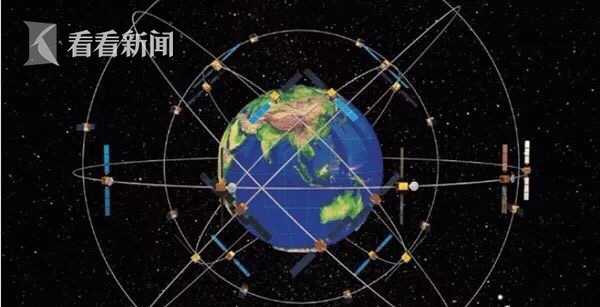
Short-term memory, long-term memory. Cognitive psychology regards memory as the process of coding, storing and extracting input information by the human brain. Memory is divided into three systems: instantaneous memory, short-term memory and long-term memory, which is based on the different ways of encoding, storing and extracting information, as well as the different length of information storage time.
What are the three memory systems: memory is also regarded as the process of the human brain encoding, storing and extracting input information, and according to the different ways of coding, storing and extracting information, as well as the different length of information storage time, memory is divided into instantaneous memory, short-term memory and long-term memory. A system.
What are the three memory systems? According to the different ways of encoding, storing and extracting information, and the different length of information storage time, memory is divided into three systems: instantaneous memory, short-term memory and long-term memory.
The three stages of memory are sensory memory, short-term memory and long-term memory. Sensory memory: Sensory memory refers to the information we receive through various sensory organs, such as vision, hearing, touch, taste and smell.
What are the three memory systems? According to the different ways of coding, storage and extraction of information, and the different length of information storage time, memory is divided into instantaneous memory, short-term memory and long-term memory. Remember the three systems.
The coding method of instantaneous memory, that is, the way instantaneous memory remembers information, is the image of external stimuli. Because the information of instantaneous memory is first registered in the sensory channel in the form of sensory images, instantaneous memory has a distinct image. The capacity of instantaneous memory is large, but the retention time is very short.
Perception is the cognitive process of giving meaning through information. ( 2) Working memory. It is the memory of processing and encoding information in the human brain within a minute. The holding time is about 5 seconds to 1 minute. Short-term memory also includes direct memory and working memory.

Weber's score), which is only applicable to medium-intensity stimuli, which is different from the Weber's score of sensory organs (2) Fechner's Law: 1860, using the differential threshold as the unit of sensation, a stimulus was measured. The difference threshold contained is believed to be the psychological intensity caused by this stimulus.
The concept of memory is the psychological process of accumulating, preserving and extracting individual experience in the mind.From storing into the brain to extracting and applying again, this complete process is collectively called memory.
Long-term memory refers to the memory maintained for more than a minute after external stimuli appear in a very short time. Features: The capacity of memory is unlimited, whether it is the type or quantity of information. Coding Semantic coding: Use words to process information and organize coding according to the meaning of the material.
Memory and memory process Definition: It is the reaction of past experience in the mind. Past experience refers to the perception of things, thinking about problems, the emotional experience caused by things, and the actions that have been carried out in the past. Function: It is the root of wisdom and the cornerstone of psychological development.
UEFA TV-APP, download it now, new users will receive a novice gift pack.
Short-term memory, long-term memory. Cognitive psychology regards memory as the process of coding, storing and extracting input information by the human brain. Memory is divided into three systems: instantaneous memory, short-term memory and long-term memory, which is based on the different ways of encoding, storing and extracting information, as well as the different length of information storage time.
What are the three memory systems: memory is also regarded as the process of the human brain encoding, storing and extracting input information, and according to the different ways of coding, storing and extracting information, as well as the different length of information storage time, memory is divided into instantaneous memory, short-term memory and long-term memory. A system.
What are the three memory systems? According to the different ways of encoding, storing and extracting information, and the different length of information storage time, memory is divided into three systems: instantaneous memory, short-term memory and long-term memory.
The three stages of memory are sensory memory, short-term memory and long-term memory. Sensory memory: Sensory memory refers to the information we receive through various sensory organs, such as vision, hearing, touch, taste and smell.
What are the three memory systems? According to the different ways of coding, storage and extraction of information, and the different length of information storage time, memory is divided into instantaneous memory, short-term memory and long-term memory. Remember the three systems.
The coding method of instantaneous memory, that is, the way instantaneous memory remembers information, is the image of external stimuli. Because the information of instantaneous memory is first registered in the sensory channel in the form of sensory images, instantaneous memory has a distinct image. The capacity of instantaneous memory is large, but the retention time is very short.
Perception is the cognitive process of giving meaning through information. ( 2) Working memory. It is the memory of processing and encoding information in the human brain within a minute. The holding time is about 5 seconds to 1 minute. Short-term memory also includes direct memory and working memory.

Weber's score), which is only applicable to medium-intensity stimuli, which is different from the Weber's score of sensory organs (2) Fechner's Law: 1860, using the differential threshold as the unit of sensation, a stimulus was measured. The difference threshold contained is believed to be the psychological intensity caused by this stimulus.
The concept of memory is the psychological process of accumulating, preserving and extracting individual experience in the mind.From storing into the brain to extracting and applying again, this complete process is collectively called memory.
Long-term memory refers to the memory maintained for more than a minute after external stimuli appear in a very short time. Features: The capacity of memory is unlimited, whether it is the type or quantity of information. Coding Semantic coding: Use words to process information and organize coding according to the meaning of the material.
Memory and memory process Definition: It is the reaction of past experience in the mind. Past experience refers to the perception of things, thinking about problems, the emotional experience caused by things, and the actions that have been carried out in the past. Function: It is the root of wisdom and the cornerstone of psychological development.
Free sports events uefa champions league app android
author: 2025-01-05 07:47App to watch Champions League live free
author: 2025-01-05 06:19 DigiPlus
DigiPlus
256.56MB
Check DigiPlus
DigiPlus
574.99MB
Check Arena Plus login
Arena Plus login
687.45MB
Check Casino redeem
Casino redeem
128.67MB
Check Europa League app
Europa League app
811.27MB
Check UEFA TV
UEFA TV
218.17MB
Check Bingo Plus
Bingo Plus
128.74MB
Check Hearthstone Arena win rate
Hearthstone Arena win rate
536.21MB
Check TNT Sports
TNT Sports
446.57MB
Check DigiPlus
DigiPlus
214.51MB
Check Casino Plus GCash login
Casino Plus GCash login
383.41MB
Check UEFA Champions League live streaming app
UEFA Champions League live streaming app
411.54MB
Check Casino Plus app
Casino Plus app
564.92MB
Check UEFA Champions League live streaming free
UEFA Champions League live streaming free
829.65MB
Check UEFA Champions League
UEFA Champions League
578.87MB
Check UEFA EURO
UEFA EURO
575.62MB
Check Casino Plus
Casino Plus
656.19MB
Check Free sports events uefa champions league app android
Free sports events uefa champions league app android
478.14MB
Check Arena plus APK
Arena plus APK
795.72MB
Check Casino Plus
Casino Plus
863.67MB
Check 100 free bonus casino no deposit GCash
100 free bonus casino no deposit GCash
714.49MB
Check UEFA TV
UEFA TV
788.82MB
Check UEFA Champions League
UEFA Champions League
243.53MB
Check Hearthstone Arena Tier List
Hearthstone Arena Tier List
679.49MB
Check Hearthstone deck
Hearthstone deck
995.27MB
Check PAGCOR online casino free 100
PAGCOR online casino free 100
892.65MB
Check TNT Sports
TNT Sports
834.74MB
Check Champions League
Champions League
392.73MB
Check Champions League
Champions League
192.47MB
Check bingo plus update today
bingo plus update today
516.48MB
Check Casino Plus login register
Casino Plus login register
722.96MB
Check Casino Plus login register
Casino Plus login register
562.73MB
Check UEFA Europa League
UEFA Europa League
982.65MB
Check Casino Plus
Casino Plus
532.96MB
Check DigiPlus fair value
DigiPlus fair value
629.48MB
Check Casino Plus GCash login
Casino Plus GCash login
662.41MB
Check
Scan to install
UEFA TV to discover more
Netizen comments More
1879 UEFA Champions League live
2025-01-05 08:05 recommend
1178 UEFA Champions League standings
2025-01-05 07:48 recommend
1403 DigiPlus
2025-01-05 07:33 recommend
2656 Hearthstone Arena win rate
2025-01-05 07:22 recommend
2877 DigiPlus Philippine
2025-01-05 06:10 recommend